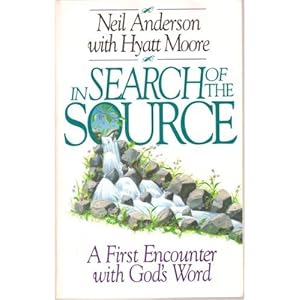by Neil Anderson with Hyatt Moore
The fascinating autobiographic account of a missionary in Papua New Guinea as he translates the Bible into the language of the Folopa people.
Non-Fiction - Autobiography
Appropriate for probably 10-12 & up as a read aloud, read alone, maybe 13-15 and up
I read this to my 13 year old daughter, we loved it!
My Library
This was a fabulous book, and such a wonderful read aloud. I read it as part of our homeschool curriculum from Sonlight, and it is another reason I love Sonlight. I never would have read this book, and almost didn't, but it impacted both my daughter and I for life. It was so fascinating to step into a radically different culture and see their initial interactions with the word of God. Most chapters tell of Anderson struggling to translate a specific passage, and then some interaction between he and the Folopa people which allows them to understand each other and the scripture better. I am so grateful for the discussions that this allowed my to have with my daughter and I will never read the Bible the same way.
Favorite Quotes:
(upon tasting a chocolate bar for the first time)
"Brothers," he said in the Folopa language, I'm dying of the deliciousness of whatever this is. "What's it like?"they asked. I wondered how he would answer. I could see the wheels turning his his head, his tongue still savoring over his teeth. To what would he compare this most different of tastes? Finally he looked up. "It's like pig's liver," he said.
The term in Folopa is bete'.
It's a word they use and use and use; it never gets tired, never old, never used up. Like words in any language, it has many moods, nuances, senses, shades of meaning. At once it embodies the concepts of root, basis, prime beginnings, deep structure, first cause, life, meaning underlying strength, essence, source.
It is the fundamental verb of "being" and the most basic metaphor in the entire language.
(on Luke 14:26)
We'd translated that into good Folopa and the men were giving their approval. "That's good," they said, "but there's one little thing you've got to change. It's just a small thing. Just a word. Everything else is good. You don't need to change anything else, but there's one part you've got to change."
"All right," I said, "what part is that?"
They smiled a little. "Well, the meaning is mixed up. The way you translated it there it says, 'Unless a personal hates his father, mother, wife, children, and all, he cannot be My disciple.'"
"Yes," I said.
"But what you should have said is, If a person hates...he cannot be My disciple.'"
I suppose I should have seen it coming but I hadn't. I could could see what they meant. They knew enough about the Gospel at this point to know that love is the key, not hate.
...
"Yes, you're right," I said. "of course you can't be a disciple if you're going to hate someone. I know it and you know it. But the trouble is, this is what the Lord really said: 'Unless you hate your father and mother, wife and children, brothers and sisters, you cannot be My disciple.' We did not translate it wrong."
"Now we know God, the true bete' of all things. Why should we ever go back to anything less?"

No comments:
Post a Comment